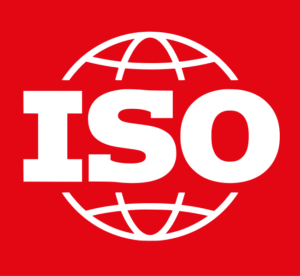In taking a long look around the manufacturing community it becomes apparent very quickly that many businesses deeply value ISO certifications. Companies across all industries proudly tout registration licenses on their websites and hang certificates on the walls of conference rooms.
The questions this naturally leads to is “Why?”. Is it just a membership that acts as a sales tool or is there actually deeper benefit to ISO methodology and standardization? What are the perks to accompany the costs and are they worth it?
In taking a long look around the manufacturing community it becomes apparent very quickly that many businesses deeply value ISO certifications. Companies across all industries proudly tout registration licenses on their websites and hang certificates on the walls of conference rooms.
The questions this naturally leads to is “Why?”. Is it just a membership that acts as a sales tool or is there actually deeper benefit to ISO methodology and standardization? What are the perks to accompany the costs and are they worth it?
A foundational principle of ISO certifications within the manufacturing sector is the ‘process approach’. This is a management strategy that involves identifying and segmenting processes to allow for standardization, measure, repeatability and the application of control systems. When a company strikes out to meet ISO standard requirements for the process approach, they often end up in close examination of their internal activity as it relates to products, suppliers and customers. Additionally, they find the need to document the complex items and even implement control systems to keep.
Implementing this strategy can certainly be a challenge for small companies and the cost in time spent on documenting can be difficult in the short term, however, the view is undoubtedly worth the climb. Documentation and process controls contribute to repeatability and consistent product. It also mitigates against the worry of tribal knowledge or the feared “brain-drain” of a staff member leaving with critical information or training. The process approach is a chance for an organization to get to know itself better and to clearly state its goals and expectations to its stakeholders.
With documentation and standardization, ISO also brings an organization the requirement for audit. Before you tense up at the word audit, lets replace it with self-evaluation. Yes, there is an external audit on an annual basis with an ISO registrar, but that is a very small and straight forward experience and to get hung up on it would be to miss the true value of how an organization can benefit from process auditing.
The entire ISO 9000 series, as well as AS9100, ISO 13485 and many other standards mandate an internal audit program as part of a complete Quality System. This requirement means a company must have a dedicated auditor who is capable of impartial examination of discrete systems as well as the connective tissue of those systems between business units. This auditor or audit team reports directly to management and is bound to a code of ethics that includes avoiding conflict of interest and never auditing their own work. The auditor roles can be filled by any existing employee if they possess a good disposition and can understand the fundamentals of your internal processes. Auditing shouldn’t be scary, but rather an opportunity for measuring and reporting on the success of the systems in place to support product realization.
A final pillar of many ISO standards is Continual Improvement. This is simply the commitment by a company to strive for perpetual improvement. It’s the third leg of the stool; where the first drives an organization to understand itself by committing its activity in writing and the second involves measuring and analysis of its ability to meet the goals. Continual improvement is the natural outcome when a process is weak or staff are unable to adhere, issues can be identified, reported, addressed and then measured for improvement. In the ISO world this is known as the PDCA or “plan, do, check, act” cycle.
If you’ve ever found yourself looking at an ISO certified organization and wondering if it’s something you should value in your suppliers, reframe the question. Ask yourself what the value is in understanding and committing to core-processes, or what the ROI might be on evaluating and identifying your mistakes before anyone else has the chance. Finally, think about the businesses who continually improve and what inevitably happens to the ones too rigid to adapt. ISO certifications do come with implementation and maintenance costs that include investments of time and money. They also present the difficult challenge of learning to truly understand internal operations, but the rewards are a clear multiplier for a business and shouldn’t be ignored when looking at new partners, new suppliers or even new competitors.
Keller Technology maintains the highest level of ISO quality management certifications as part of our ongoing commitment to total reliability. Find out more.

